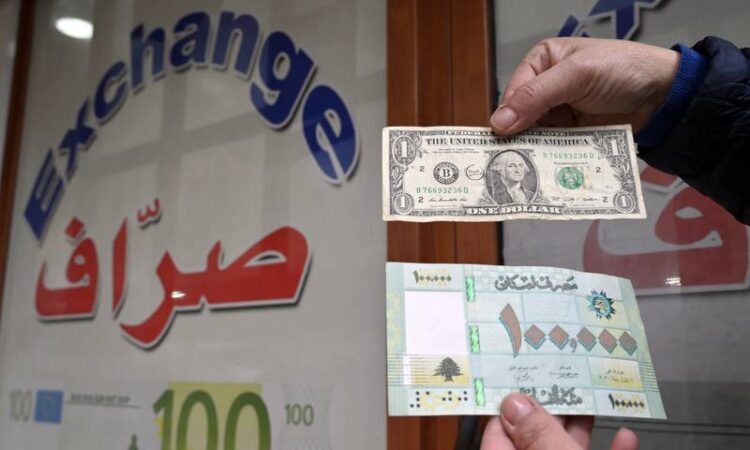
A prominent association of Lebanese lawyers, which supports depositors unable to access their trapped savings, has called for an “escalation” against bank owners and their residences.
Since Lebanon’s crippling economic crisis, which first became apparent in 2019, commercial banks have imposed informal and severe capital control laws that have limited depositors’ access to their life savings.
United for Lebanon founder Rami Ollaik said they were seeking “to direct the depositor’s anger towards bank owners at their residence”.
“This came out after closely observing the amount of anger building up and the resulting sense of hostility by those who are starting to think or realise that they might have lost all their life savings,” he added.
The collective of lawyers has argued that article 184 of the penal code allows the use of force and the committing of an offence in defence of oneself or one’s money.
Angry depositors and their supporters recently attacked bank entrances in Beirut, before setting fire to the gates of one bank owner’s home outside the Lebanese capital.
Some depositors have also stormed banks and demanded access to their savings.
The financial crisis has been blamed on a decade’s worth of corruption and mismanagement by Lebanon’s elite, including its banking sector.
Banks on Tuesday resumed an open-ended strike over recent judicial measures against them, which include — but are not limited to — the charging of some senior bankers and banks with money laundering.
The Association of Banks in Lebanon had also hit out at a judicial decision that would allow borrowers to pay back foreign currency loans at the long redundant rate of 1,507 Lebanese pounds to the US dollar.
However, the ABL said banks were forced to disburse foreign currency deposits in cash in the same currency, when banks had dwindling foreign currency reserves.
The head of the ABL recently warned that commercial banks do not have the liquidity to return money to depositors who retain their savings in the country’s bank accounts.
Prosecutors have also sought access to the accounts of some senior bankers.
Mr Ollaik said that by putting pressure on bank owners, it was hoped they would be more likely to comply with judicial measures.
Other than taking justice into their own hands, as per Article 184 of the penal code, “what other option do they have?” Mr Ollaik asked.
There have been a handful of successes in the courts. Earlier this year, a court ruled in favour of a couple who had been involved in a dispute with Lebanon’s Fransabank over their blocked deposits, a move which partly led to the banks going on strike.
The economic crisis has seen the local currency plummet in value by more than 98 per cent — it is now trading at more than 100,000 Lebanese lira to the US dollar on the parallel market, which is the most used rate.
Inflation is rampant, with salaries unable to keep up. Much of the country now lives in poverty, with a lack of basic essentials such as medicines and electricity.
Updated: March 15, 2023, 11:43 AM



